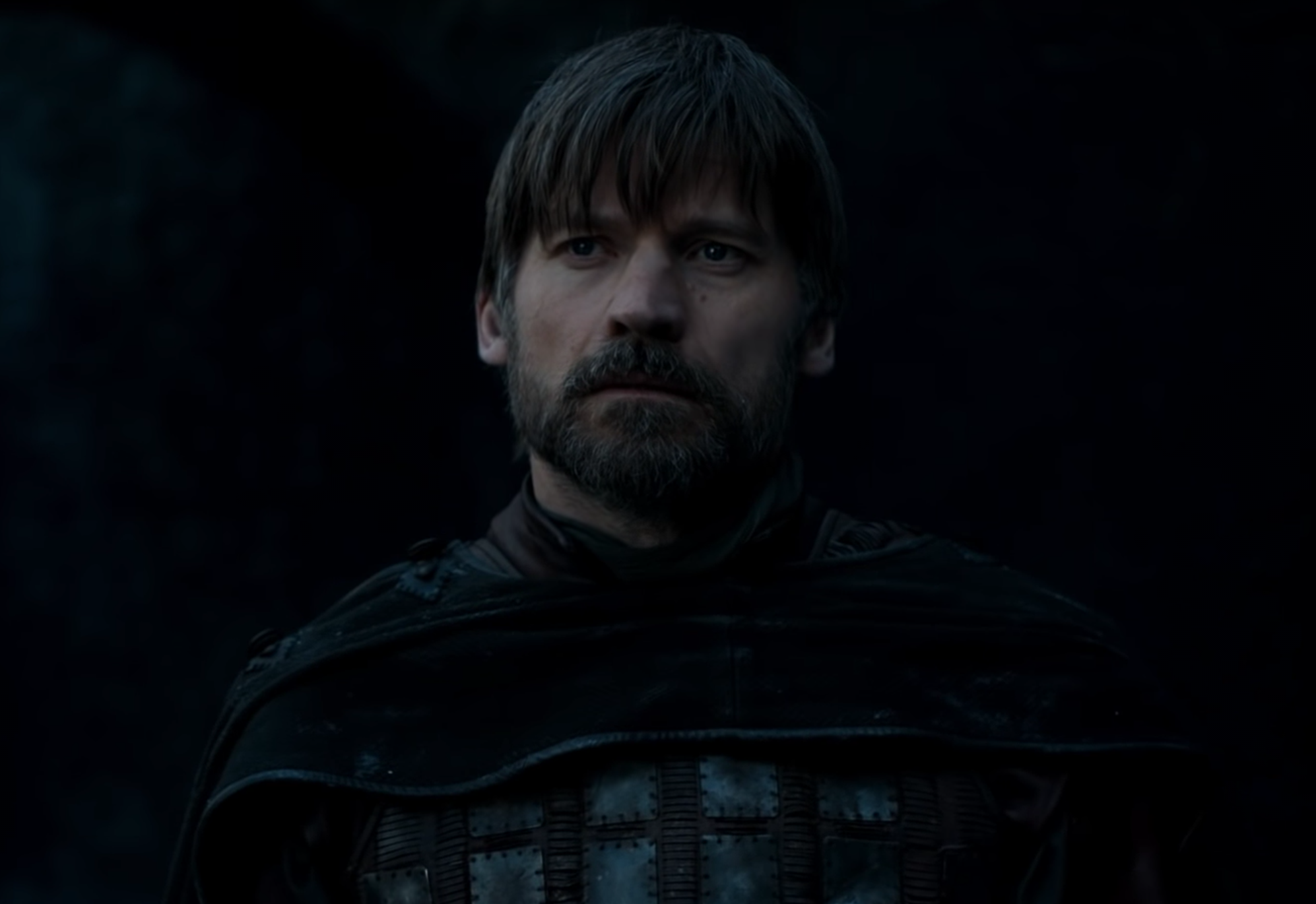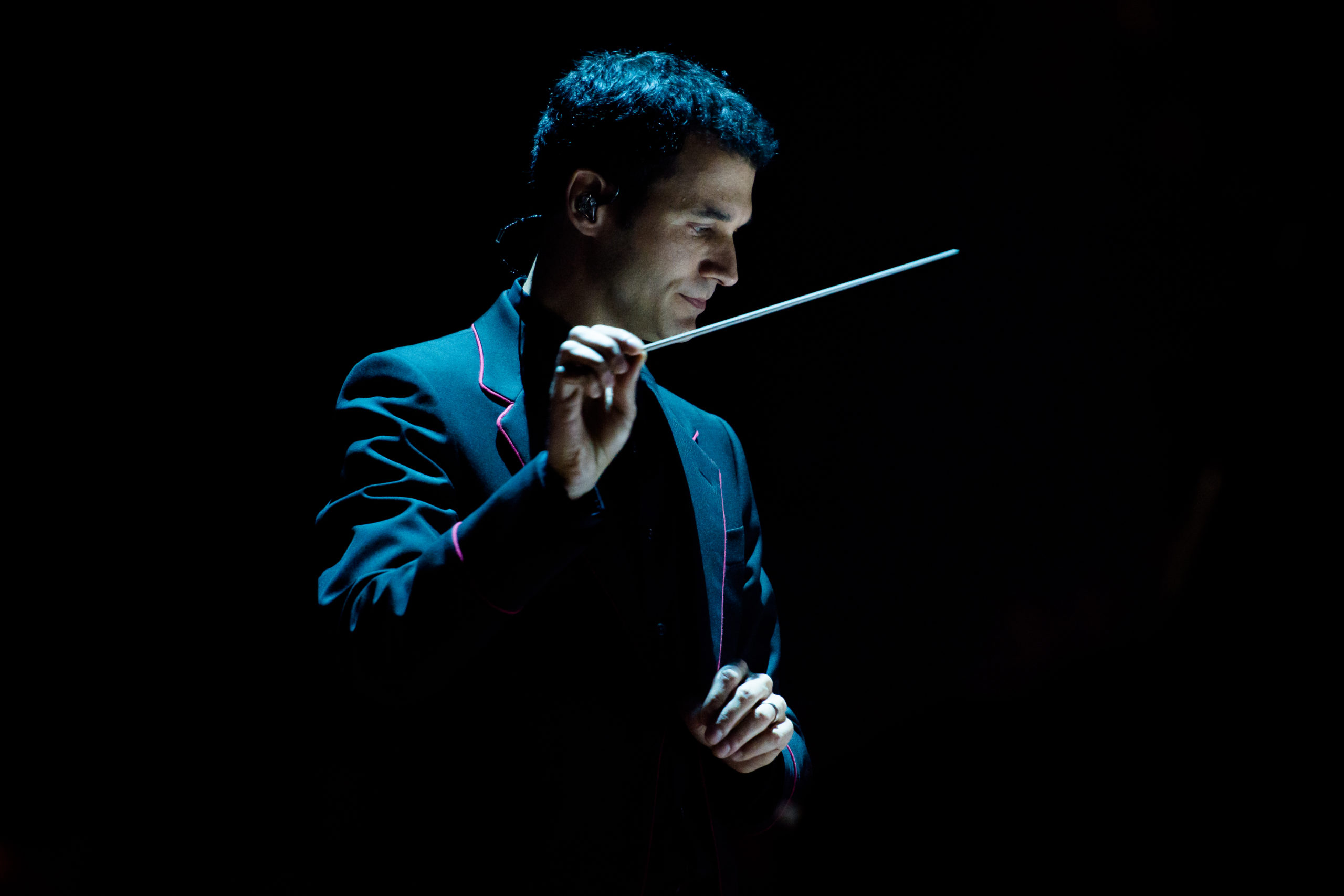One farcical production error has dominated the discourse about last night’s third-to-last Game of Thrones episode: a Starbucks cup left on the table near Daenerys during the celebratory, post-bodyburning dinner. The scene in which it was included is also a fitting context: the apotheosis of the late-period horny and cuddly Tormund Giantsbane’s cartoonish antics. The Wildling leader spills wine all over himself and screams about how much he loves Jon Snow. The moment feels almost improvised, and also generally out of line with a character who was once compellingly emblematic of a world with a meaningfully different value set instead of just an ability to drink and fuck more than everyone else. How far we’ve come, the scene suggests, but it’s hard not to also consider how far gone we are from the tone and syntax that made this show riveting at the beginning, before it was an obligatory sports event.
Indeed, the larger dinner scene felt like an attempt to get back to some perceived notion of character work after the dense action of last week’s Battle of Winterfell. And yet, like most other scenes in this season, it mostly seemed like an excuse to clumsily connect dangling plot points. The areas of focus in its mini-conversations included some integral to the show’s political drama, but also addressed fan-service-y questions that gained steam on social media and through quick-hit blog posts. For example: Will Brianne sleep with Jaime or Tormund (or both)? Will Gendry try to lock Arya down? Will Jon and Daenerys keep things platonic in the wake of the painful familiar news, or will incest finally be destigmatized in the Thrones universe?
All of these issues were dealt with using a variety of either cartoonish or dramatically flaccid dramatic devices. How to get Brianne into bed with someone? A game of Westerosi “Never have I ever.” How to wrap up the Gendry and Arya thing? A minute-long proposal on bended knee. Jon and Daenerys’ chemistry continues to be presented to us as a given, rather than actually demonstrated. Even passing exchanges between less meme-able characters that could have been interesting—say, Davos discussing his reaction to Melisandre’s self-immolation—are squandered. In that particular case, we simply got a summary of something that we already watched happen: Davos hoping to make good on his murderous promise to himself, Melisandre preempting him by killing herself first. How’d it affect him? Who knows? Who cares? In Game of Thrones now, there are no more curtains to peek behind. In later seasons, most TV shows are forced to shake off dead weight to remain dynamic and move at the clip they need to. Game of Thrones, instead, has decided to simply address its characters in a more professional manner, using them as pawns in a larger game—not the game of thrones itself, as much as the puzzle of finding a tidy-enough ending to satisfy a dominant chunk of viewership.
To put this in overwrought cosmic terms, the coffee cup gaffe feels emblematic of the Game of Thrones showrunners’ push to bring things to a cathartic close while often not giving a shit about how, exactly, it gets there. Any sense of coherent time and distance has been overthrown. We can’t fault the writers for that alone; any show is influenced by the necessities of the limitations of its preordained runtime. Perhaps, then, we can excuse Grey Worm getting back to Daenerys’ war room after being on the other side of the world in a boat in the previous scene, and other puzzling details. But it’s hard not to reflect on how much of what was compelling about the show is lost in the process—in this case, how long it once took to get places, the impossibility of distance and natural obstacles—and how far that seems to be from the showrunners’ minds. By now, they are busy playing a game of chess (or maybe checkers) with the characters they’ve deemed most important, after having gradually molded them into immutable mythical and stereotypical renderings of the characters they once were, i.e. weak, confused, weirdly charming, and unconventionally detestable people stuck with big, impossible jobs to do.
Even characters that were once built to be all personality have none here. One of the most intriguing plot prospects in this season was Bronn’s unlikely Lannister assassination mission, left dangling before the big battle, and it was brought to a distractingly logic-free and ultimately anti-climactic confrontation last night. How did Bronn waltz into the gates of Winterfall with a big ol’ crossbow, and find the brothers he was searching for alone and unarmed in a random bar within the castle? This bit of unintelligibility would have been okay, perhaps, if the scene had been smart. The quips could have been good, the characters’ shared pasts explored through clever repartee reminding us of what made their relationships to one another so compelling back in the day (read: when Bronn was an important character). Instead, it was all business, palely imitating past rapports, summarizing plot points as if to bring people up to speed, and wrapping up with a deal made headspinningly quickly, shooting any potential for dramatic effectiveness in the foot.
Even the scenes related to the most crucial elements of the plot were rendered clumsily. Varys gets something meaningful to do for the first time in two seasons or so, but still, for all its dramatic import, it feels mercenary and totally artless. Outside of the fact that his debate with Tyrion included yet another dick joke (an important throughline for Varys scenes in this time out of the spotlight), the extent to which the spirit and subtlety of his character has changed since the last time he said anything that affected the show’s plot is fairly staggering. Varys’ job description as a character was being the smartest, wiliest, and most cynical man in whatever room he is in. Here, he speaks in patriotic platitudes that could almost be pulled out of GoT and placed into a historical drama about a “tyrant” being overthrown in any time period or perhaps a bad Oliver Stone political biopic. Ultimately, a moment that could have been imbued with true pathos, real thematic insight, and illustrated something meaningful about both the characters in the room—and Jon and Dany, the characters being talked about—feels as cornball as a drunk Jaime stripping down in Brienne’s room with the excuse of the fire being too hot. When will someone on this show finally just wink at the camera?
Ultimately, the primary insult of this season of Game of Thrones is that the architecture of its specific scenes do a gross disservice to characters and themes that the show spent so many seasons and jillions of dollars building up. In its mad dash to the finish, nearly every scene feels like an outline of one, as if the writers had forgotten to return to it and replace stand-in plot summary with actual dialogue. The axiom of “showing, not telling” is a crucial one to all forms of creative fictional writing, and in the late Thrones, every line tells. The dialogue makes sure we’re up to date with what’s happening, and functions like either turning on cruise control or slamming on the accelerator in terms of the plot’s development. The scenes—always short—reinforce the stereotypes of the characters we’ve watched for years rather than modifying or deepening them. Everyone has become the same as the things they do.
Meanwhile, the things they do have become less interesting, painted in the broad, didactic strokes of superheros rather than feeling like the random failings and triumphs of morally compromised, fallible, or pathetic would-be power players. We are primarily engaged in Game of Thrones, at this point, to just find out what happens, which has given the creators the opportunity to subtly discard most of the elements that once made the show unique, and even revolutionary in its industry. But now, there’s simply not enough time for anyone to give a shit about any of that. Let’s instead ask: When’s the last dragon gonna die?





